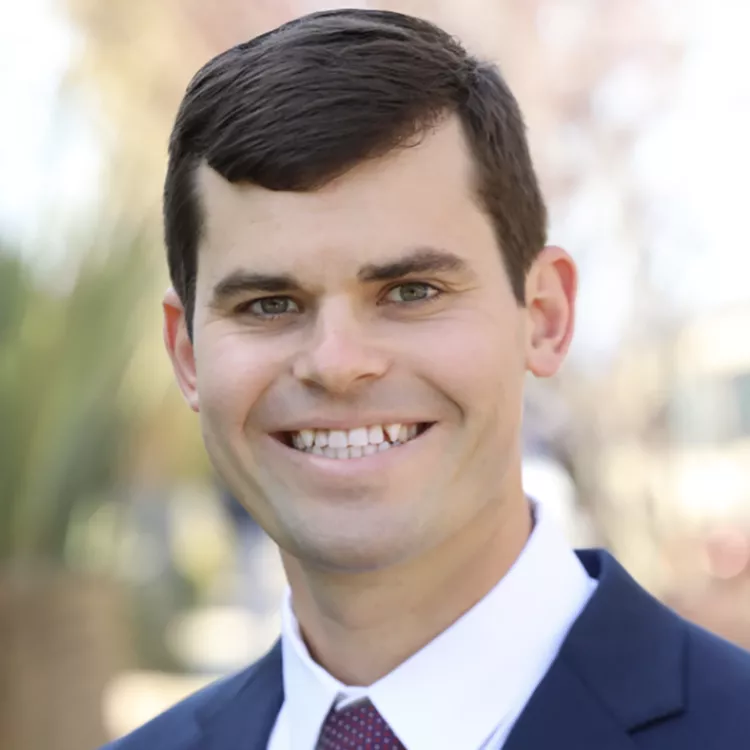According to the American Psychiatric Association, depression is a common problem but a serious health issue. It generates negative thoughts and acts within us. So, let us know what is depression and its types.
We are familiar with all these things like feeling sad, wicked sense, lack of interest in daily activities or happiness. But when all these symptoms live longer in our lives and affect us too much, it is called depression. It is the most common disease in worldwide, according to the World Health Organization (WHO) around 264 million people worldwide are affected by it.(1)
What is Depression?
It is a mental health disorder. Especially it is a mood disorder caused by persistent sadness and with lack of attachment to anything. Depression is not the only problem of a few days, but it is stay for long time. However, the average time of the depression episode is 6-8 months.
In which age group depression is found?
Depression has been observed among new-born to elderly. The number of depression in children and adults is increasing day by day. Stressed life, being highly ambitious further enhances them. It is mainly considered to be a pieces age for the beginning of depression, but it can happen at all ages. According to WHO, 1 in 6 women and 1 in 8 men are suffering from it.
Suicides.
Eight lakh (8,00,000) people in all over world commit suicide every year. The proportion of suicides has now grown to 10.9 from 7.9 in per 1,00,000 persons. In every 40 seconds a person becomes a victim of suicide and every 3 seconds a person tried to commit suicide. This data is given globally by WHO (World Health Organisation). (2)
- Depression is more observed in the village or urban areas.
- The educated have a large amount according to the uneducated.
- The quantity is equal to the poor and the rich.
Types of Depression.
Depression have many different types, including;
- Major depression.
- Dysthymia and chronic depression.
- Seasonal effects or weather affected depression.
- Psychotic depression.
- Bipolar depression.
Major Depression.
Here the person goes into deep despair and hope. Symptoms of this depression interfere with the person’s ability to work, study, sleep, eat and relish activities. It can occur only once, but it often happens many times in a lifetime.
Dysthymia and Chronic Depression.
Dysthymia is one among the types of depression and is referred as long-running depression. It is not a severe form, but the symptoms can last for several years. People who suffer from dystopia are usually able to act normally but always seem unhappy. The condition of dysthymia is different from major depression. The symptoms of dysthymia are less than major depression. In adults it last for at least two years and one year in children or adolescents.
Seasonal Effects or Weather Affected Depression.
Weather-affected depression appears at the same time every year. Usually it starts in spring or winter and ends at the beginning of spring or summer. A unique form of weather-affected depression is known as summer depression. It starts at the beginning of spring or summer and ends in spring.
People who suffer from it, have major symptoms such as sadness, irritability, lack of interest in usual activities, running away from social activities and decreased focus etc.
Psychotic Depression.
About 25% of people those are hospitalized for mental illness are suffering from psychotic depression. However, people have face hallucinations in this condition. Sighted or listening to things that are not actually or delusional, which also cause irrational thoughts and symptoms of fear.
Bipolar Depression.
From the above mentioned types of depression it is one of them. Here the mind is constantly depressed or very happy for several weeks or months. The mind of the victim is alternately in two different and opposite stages. This disease shows a sudden change in human behaviour. Sometimes the patient is very happy and sometimes very depressed.
| Footnote. There are five types of depression. Those are major, dysthymia, seasonal, psychotic and bipolar depression. Each one have its own nature and type. |
So, after the types of depression let us see the major causes of depression.
Major Causes.
People are more likely to be depressed with different causes. Therefore, it is important to discuss your symptoms with the doctor. So let’s know about the major possible causes;
- Genetics.
- Brain Chemical Imbalance.
- Hormonal Imbalance.
- Seasonal Changes.
- Situational Causes.
Genetics.
Depression can be the cause of hereditary. You can also experience it, if a member in your family has ever had depression. It is not yet known which genes are involved in it.
Brain Chemical Imbalance.
Some people may have depressed due to changes in their mind. Although the cause has not yet been ascertained, but it is believed that depression begins with the functioning of the brain. Therefore, some psychiatrists take the assistance of brain chemistry in the cases of depression.
Neurotransmitters in the brain, especially serotonin, dopamine or norepinephrine affect feelings of happiness, pleasure and can be unbalanced the state of depression. The cause has not yet been ascertained properly. Antidepressant works to balance neurotransmitters. It mainly balances serotonin. However, the role of neurotransmitters has not yet been revealed.
Hormonal Imbalance.
Changes in hormone production or hormone functioning can also be the onset of it. Changes in hormones such as menopause, childbirth, thyroid problems or other disorders can also lead to depression.
Postpartum causes depression in mothers after childbirth. Although it is quite common to be sensitive due to changes in hormones. Therefore, such kind of depression is a serious health issue.
Seasonal Changes.
As winter days come and the days become shorter, many people feel lethargic, tired and face lack of interest in everyday work. This problem is called weather affected disorder (WAD). This condition usually ends when the winter ends and the days become bigger. You can take medication after consulting with the doctor to treat it.
Situational Cases.
Trauma, a major change in life or a conflict can aggravate a problem like this. Losing a loved one, being fired from job, facing financial problems or any other serious changes lead to sadness.
Post-traumatic stress disorder (PTSD) is a form of depression that occurs after undergoing a serious condition in life. Often soldiers returning from war have face PTSD issues. It can also be caused by a number of incidents such as trauma in childhood, abuse or attack of a scary incident, serious car accident or other accident, caused by someone threatening etc.
| Footnote. There are many causes but the major causes are genetic, brain chemical imbalance, hormonal imbalance, seasonal changes or situational cases. |
Symptoms of Depression.
The symptoms may vary according to the types. It not only affects your thoughts and feelings but also your work and relationship. So let’s know about the symptoms;
- Sadness.
- Fatigue.
- Trouble in concentrating.
- Anger.
- Peevishness.
- Despondency.
- Avoid fun activities.
- Excessive sleep or too little sleep.
- Lack of energy.
- Craving for unhealthy food.
- Anxiety.
- Always isolated from the other.
- Restlessness.
- Be alarmed,
- Difficulty in thinking or making decisions clearly.
- Poor performance at work or school.
- Not participating in activities.
- Be guilty.
- Bringing suicidal thoughts to mind.
- Abuse of medication or alcohol.
Prevention for Depression.
Through the several ways you can easily get prevention from this, such as;
Diet for Depression.
It is scientifically proved that some food make us feel happy. So, today we tell you what kind of diet you should use to be happy and get rid of it.
Foods To Eat in Depression.
Use mood-enhancing food that are enrich with tryptophan, omega-3 fatty acid and folic acid, such as asparagus, eggs, turmeric and pumpkin seeds etc. These components increase the level of serotonin that boost your mood. With the use of almonds and cashew nuts and drinking green tea in the morning also relieves stress.
Also add vitamins and magnesium in your diet. Eat only fresh fruits and vegetables. Always eat food on time. Drink a lot of water and prefer easily digestible food, as constipation can aggravate your discomfort.
Foods To Avoid in Depression.
Caffeine, nicotine and alcohol are bad for your overall health. Do not consume fast food, hydrogenated oils, trans fats, refined carbohydrates and artificial sweeteners. Sugar can also spoil your mood.
Exercise for Depression.
Exercise or yoga such as Halasana, Sarvangasana and Shavasana etc. play an important role to suppress the depression. Meditate in the morning to heal the condition and breathe deeply and exhale slowly. However, you can also walk or jog in the morning.
Books for Depression.
Read good books or novels related to mental spirituality. Listen to psalms and read the scriptures. It gives you inner peace and encourages positive behavior and thoughts.
Music for Depression.
Take the help of music to create an atmosphere of happiness around you. But don’t listen too sad or heart-breaking songs. Listen melodious and good songs which enhance your mood.
Sleep Early for Depression.
Wake up with sunrise, don’t stay awake until late at night. Staying awake after 10 o’clock and sleeping after 6 o’clock creates emotional stress and makes your mood dull and depressed. Remove your eyes from a laptop or mobile phone at least half an hour before bedtime.
Pursue Habits for Depression.
Fulfill your hobbies that give you happiness. Spend time with your friends and family and stay around people who give you pleasure. Eradicate negative thoughts from your mind and fill the mind with positive ideas.
| Footnote. To prevent yourself from this, take a healthy diet, listen songs, sleep early, pursue good habits, read books and many more. |
Diagnosis for Depression.
The doctor can diagnose it by the following ways;
Physical Examination.
Doctors can do your physical tests and you can also ask some questions related to your health. Because, in some cases, it is caused by physical problems.
Laboratory Tests.
Doctors can suggest blood tests. Which is called full blood count or can test the thyroid, to make sure about your overall health condition.
Psycho-medical Tests.
The doctor asks about your symptoms, thoughts, emotions and patterns of behavior, you may be asked to fill out some answer of few questionnaires.
Treatment for Depression.
Here are the following ways for the treatment;
- Mental support.
- Psychotherapy – also called talking therapy, such as – cognitive behavioral therapy (CBT).
- Treatment by medicines – anti-depressants are used.
Psychotherapy.
- Psychological or talking therapy for depression includes cognitive behavioral therapy (CBT), interpersonal psychotherapy and troubleshooting treatment.
- CBT and interpersonal therapy are two main types of psychotherapy, which are used to cure depression. CBT can be delivered face-to-face, in groups or by telephone in individual sessions.
Anti-depressants Medicines.
These medicines are suggested by the doctor. Those are used to cure moderate to acute depression. These medicines are not given to young children. Teenagers should also use it very carefully. For example – tricyclic anti-depressants.
Exercises and Other Treatments for Depression.
- Aerobic exercise – Aerobic exercise can cure mild depression, as it stimulates the neurotransmitter norepinephrine, which is mood related.
- Brain stimulation treatment – Here doctor prefer electroconvulsive therapy to treat depression.
- Electroconvulsive therapy – Severe cases of depression that have not made a difference in treatment by drugs can benefit from electroconvulsive therapy (ECT); It is especially effective for psychological depression.
| Footnote. It can be treated according to the patient’s condition. Treated either by exercises or through drugs or some psychology therapy. |
Risk and Complications for Depression for Depression.
Depression is more diagnosed in women than men, as women are more likely to have treatment. Factors that increase the risk of growth or triggering depression includes;
Some personality traits, such as;
- Low self-esteem.
- Too much dependent.
- Self-criticality.
- Pessimist.
Having any Painful or stressful events like;
- Death or loss of one person
- Financial problems.
- A difficult relationship.
- Physical or sexual abuse.
Close relatives have depression in which;
- Bipolar disorder.
- Suicidal tendency.
Having a history of other mental health disorders like;
- Eating disorders.
- Anxiety disorders.
- Abuse of alcohol or recreational drugs.
- Post-traumatic stress.
Severe or prolonged illness;
- Cancer.
- Stroke.
- Heart disease.
- Some medications, such as some high blood pressure medications or sleeping pills (talk to your doctor before discontinuing any medications).
Complications for Depression.
Complications associated with depression include;
- Overweight or obesity, that can lead heart disease and sugar.
- Pain or physical illness.
- Alcohol or drug abuse.
- Anxiety, panic disorder or social fear.
- Family problems, difficulties in relationship and work or school problems.
- Social isolation.
- Suicidal feelings, suicide attempts or suicides.
- Self-deformity, such as bites.
- Premature death from medical conditions.
Frequently Asked Questions.
Yes, alcohol is a depressant as it give you positive mood with lack of self control, alcohol mainly effect on your central nervous system. It prevent your ability to take personal decision. However, regular consumption make negative impact on one’s mental as well as physical health.
Postpartum depression is a type of depression, which is often seen in pregnant lady who are going to give child birth. In general, it is a complication of giving birth. Here common symptoms are mood swing, crying spells and anxiety.
Bottom Line.
Depression is a serious disorder and has many types that can cause several mental and physical complications in our day to day life. If it is not treated, it became worsens, resulting in emotional, behavioral and health problems that affect every part of your life.
However, it can be treated with proper way through mental support and regular exercise. A person with depression should consult with the doctor or Psychiatrists, who can give you the proper suggestion with medication through which you can bring yourself out from this situation.
+2 Sources
Freaktofit has strict sourcing guidelines and relies on peer-reviewed studies, educational research institutes, and medical organizations. We avoid using tertiary references. You can learn more about how we ensure our content is accurate and up-to-date by reading our editorial policy.
- Depression; https://www.who.int/news-room/fact-sheets/detail/depression
- Suicide: one person dies every 40 seconds; https://www.who.int/news/item/09-09-2019-suicide-one-person-dies-every-40-seconds









































 Workout
Workout

 Meditation
Meditation






 Podcast
Podcast
 E-book
E-book














